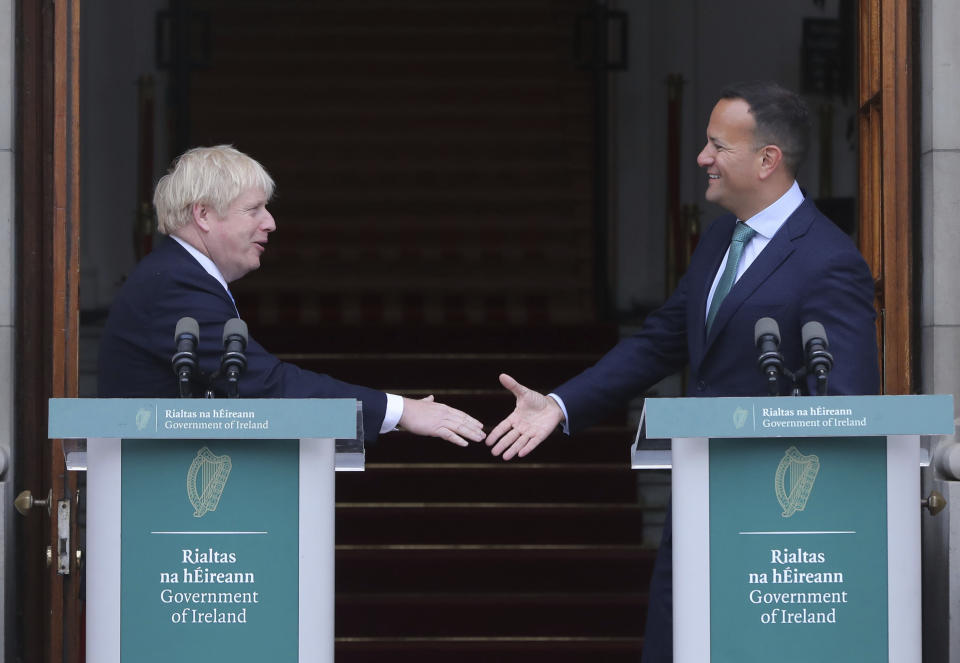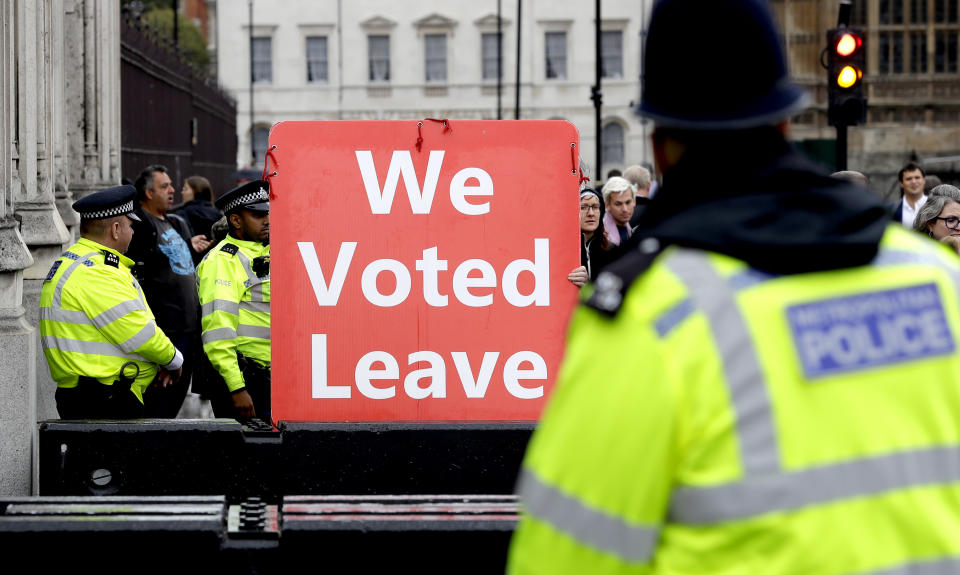Irish border riddle still confounds the Brexit experts
BRUSSELS (AP) — In announcing Monday that he hopes to break the Brexit deadlock by next month, Prime Minister Boris Johnson is seeking to solve in a matter of weeks a puzzle that has troubled European and British specialists for more than two years.
Before negotiations on Britain's departure from the European Union even began in 2017, the vexing issue of how to keep goods flowing seamlessly between EU member Ireland and Northern Ireland when it leaves along with the rest of the U.K. — without time-consuming border checks — was identified as an obstacle that could derail the entire process.
A team of experts has focused solely on ways to tackle the conundrum. But with Britain set to depart on Oct. 31 and a costly no-deal withdrawal a possible outcome, even the experts do not appear to know exactly what will happen at the border on Brexit day. If they do know, they are not saying.
"The objective is to have all the checks and controls performed. How and exactly where they will be performed is something we are still working on," one of them responded when asked by The Associated Press whether vehicles would be stopped at the sinuous Irish land border on Nov. 1.
"There will be disruptions. Where they exactly will be beyond the island of Ireland is something I cannot tell you," the EU official said, speaking on condition of anonymity because of the sensitive nature of the ongoing Brexit talks.
It's not simply a technical issue about customs controls over goods, produce and livestock. The challenge of keeping trade and business running smoothly is deeply entangled with unique questions of identity: what it means to be from Northern Ireland, to have the right to Irish or British citizenship, or both.
Northern Ireland's Catholic and Protestant communities remain deeply divided two decades after a conflict that claimed around 3,700 lives. The peace agreement that ended 30 years of sectarian "troubles" helped bring the border down. The last thing people want is a return to those times.
It's the reason why Britain's 27 EU partners are insisting on the so-called "backstop:" a fail-safe guarantee to ensure that no hard border with customs outposts and infrastructure will be erected on Oct. 31.
"The backstop continues to be a critical component of the withdrawal agreement unless and until alternatives are found," Irish Prime Minister Leo Varadkar told Johnson on Monday. "We are open to alternatives but they must be realistic, legally binding and workable, and we haven't received such proposals to date."
Beyond stressing that some delays might happen at unidentified points on the land border, Ireland's no-deal Brexit planning focuses on potential chokepoints at ports and airports, like those in Dublin and the Rosslare Europort. Additional warehouses, inspection bays, offices and parking facilities have been put in place, with increased capacity for document and food safety checks. Scores of new staff have been hired and temporary accommodation set up.
Lots of delays could be caused by animal and plant health controls. On average, commercial vehicles cross the Irish border 13,000 times a day. Of those movements, about 3,000 loads of beef, lamb, pork, poultry, eggs and dairy products would have to be stopped somewhere on their journey, with each check taking about 10 minutes to complete. That's if all goes well.
Beyond the technical considerations of daily trade and business, concern is mounting about smuggling; the illicit trade in fuel, alcohol and tobacco that could be super-charged by the difference in customs duties on either side of the border as well as the predicted fall in the British pound after Brexit.
At some point, police will have to tackle the problem, and it's likely they will be obliged to do so around the border.
"The people of this island — north and south — need to know that their livelihoods, their security and their sense of identity will not be put at risk as a consequence of Brexit. So the stakes are high," Varadkar said, before he and Johnson retired to discuss possible alternatives with only seven weeks to go.




